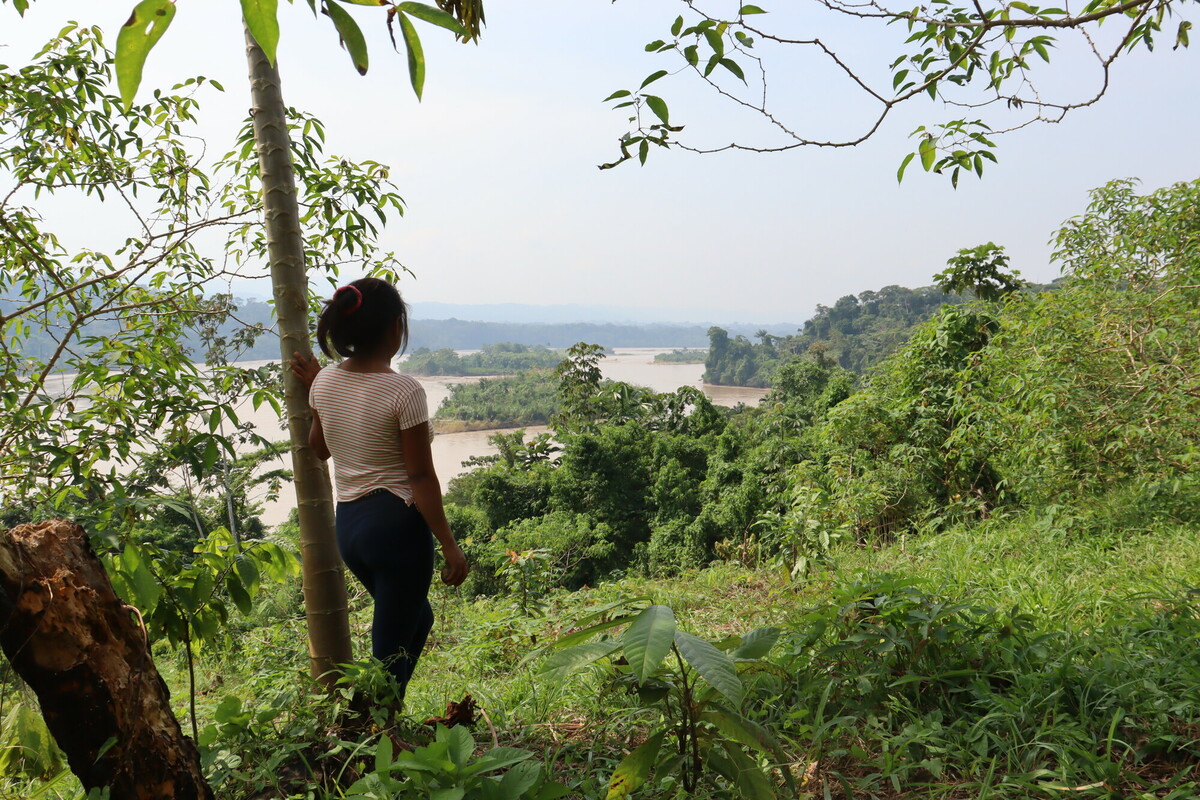
Cool Earth: A year in photos
As we approach the end of the year, we wanted to take a moment to reflect and look back on our achievements in 2023. Here are some of the top images captured by our teams and our partners who work on the ground in the awe-inspiring rainforests of Peru, Papua New Guinea and The Congo.
Historic Partnership Signing, Peru
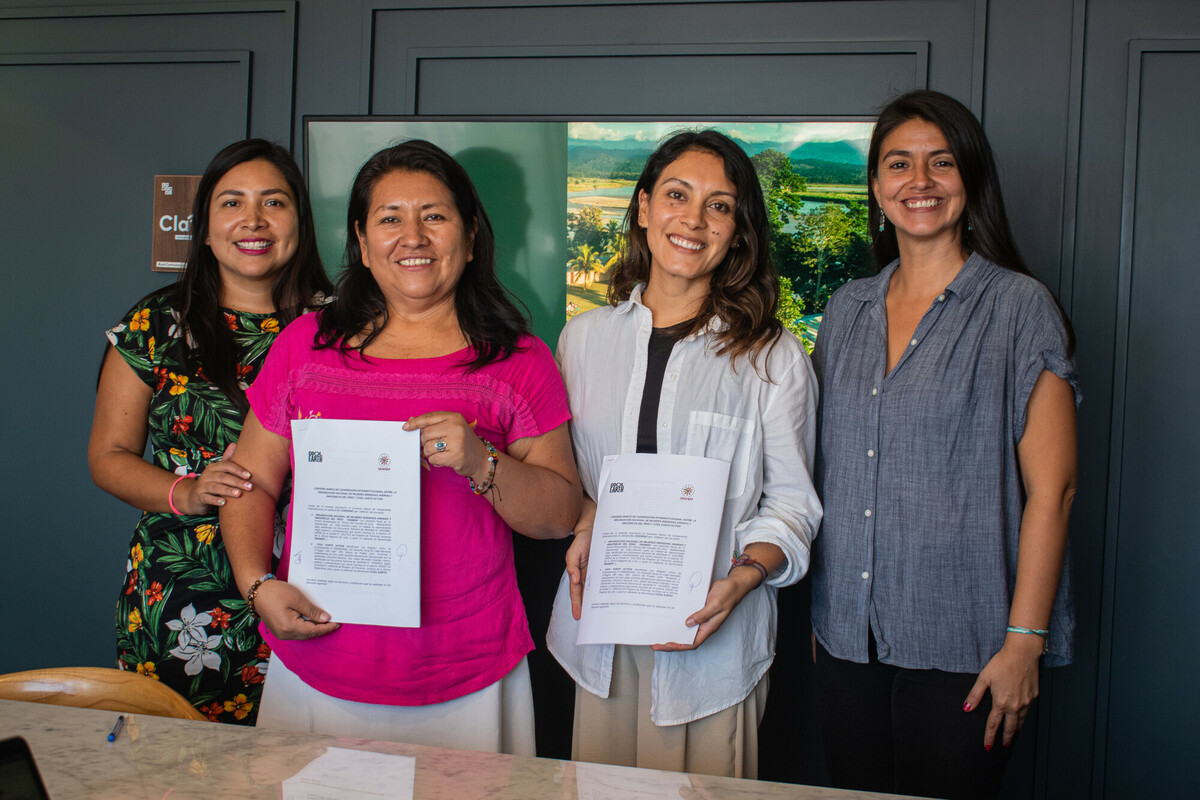

This agreement was signed by the president of ONAMIAP, Ketty Marcelo, and the country director of Cool Earth in Peru and Head of Programmes, Isabel Felandro.
In April, Cool Earth signed an agreement with ONAMIAP, an all-female Indigenous group based in Peru. This agreement was signed by the president of ONAMIAP, Ketty Marcelo, and the country director of Cool Earth in Peru and Head of Programmes, Isabel Felandro, to find local solutions for adaptation and mitigation against climate change from Indigenous peoples.
Coconut Seedlings, Papua New Guinea
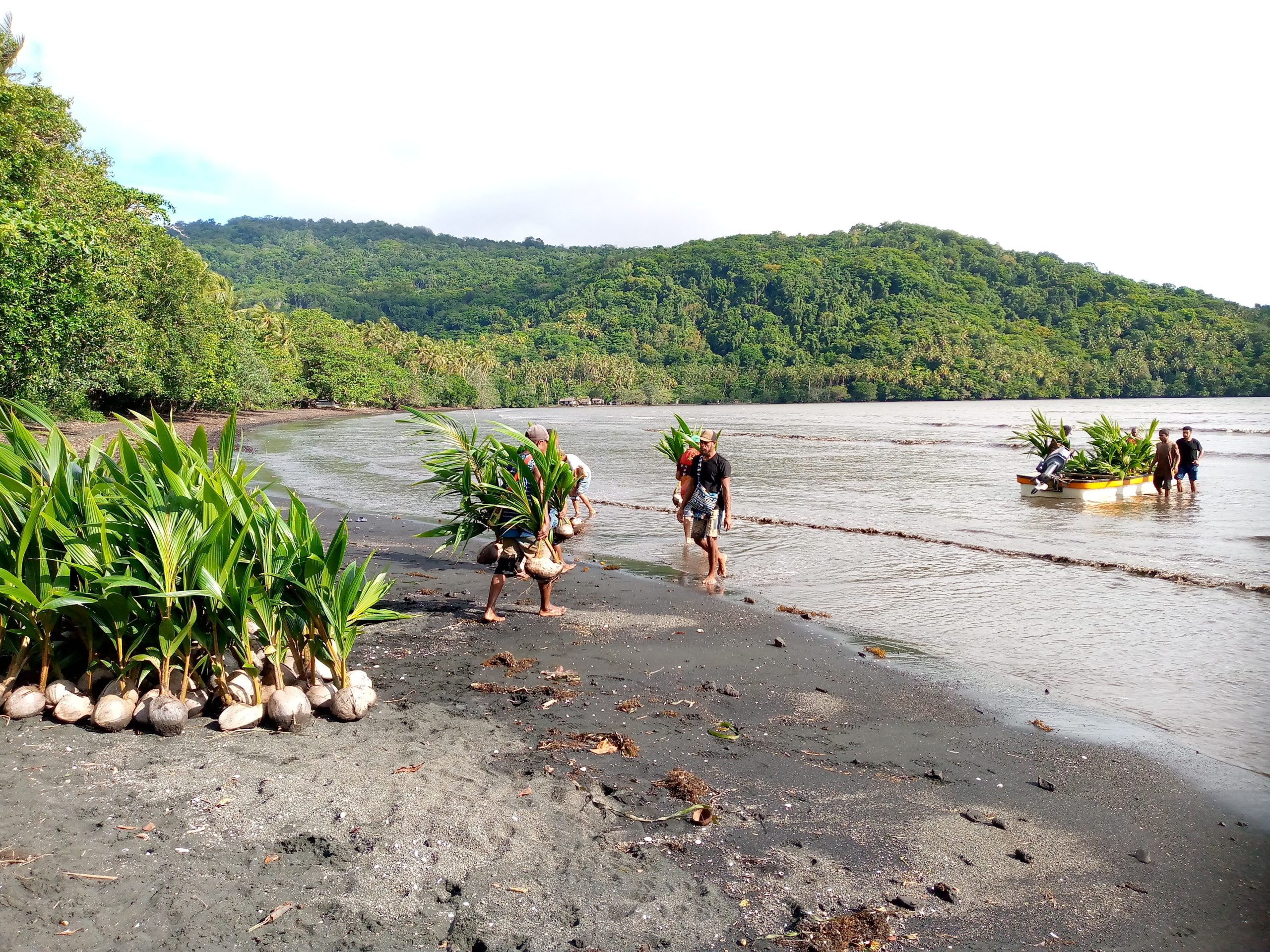

The Wabumari community in Papua New Guinea uprooting and distributing their first lot of coconut seedlings from land to boat.
Here’s the Wabumari community in Papua New Guinea uprooting and distributing their first lot of coconut seedlings. With the support of Cool Earth, a brand new coconut nursery was established in May this year. For Wabumari, many of the existing palm trees were planted during the colonial era and no longer produced fruit. Representing a time for well needed change, these new trees were chosen and planted by the community themselves.
First Forest Monitors in Huraracayo, Peru
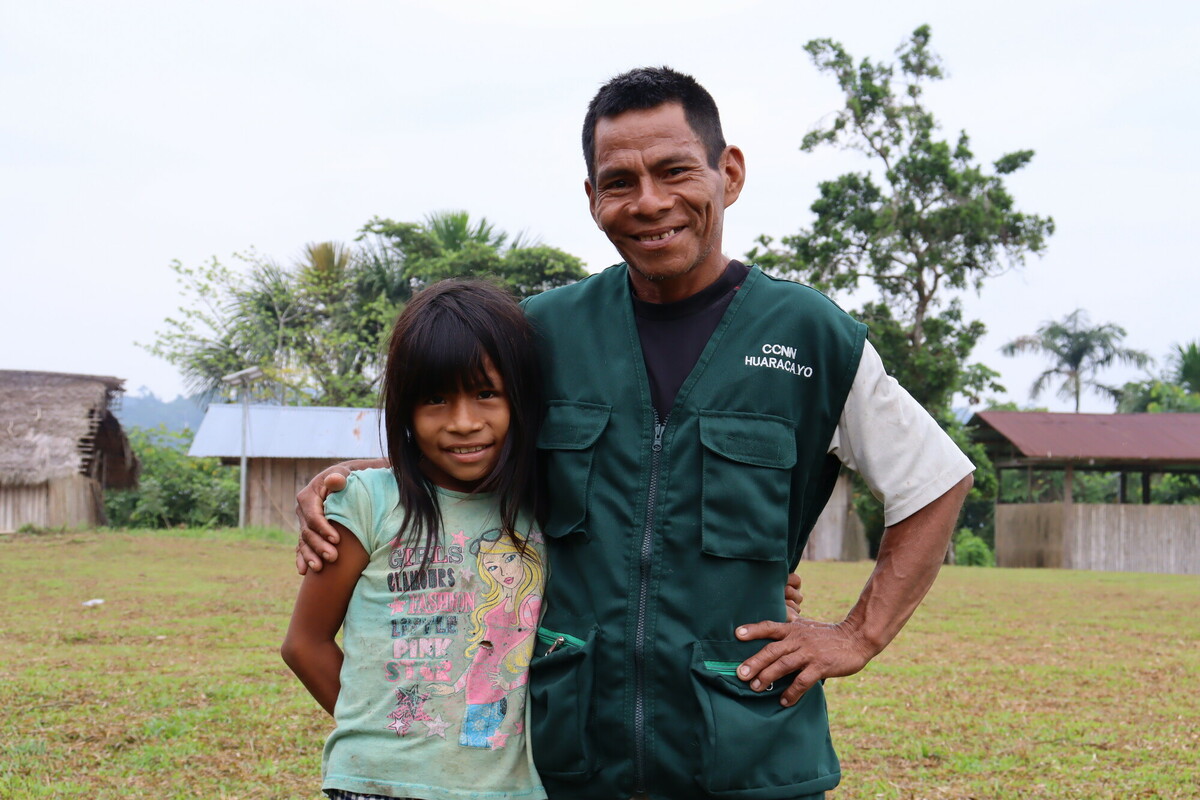

Abelardo and his youngest daughter.
Abelardo is 53 years old and is a father of 10 children and one of the six monitors leading the Rainforest Labs project in Huaracayo. Cacao producer and fish farmer, he is committed to safeguarding the future of his children, especially the youngest. Providing Indigenous peoples and local communities with the tools to protect their ancestral territories is one of the best ways to keep rainforests standing and fight the climate crisis.
Forest Agreement, Papua New Guinea
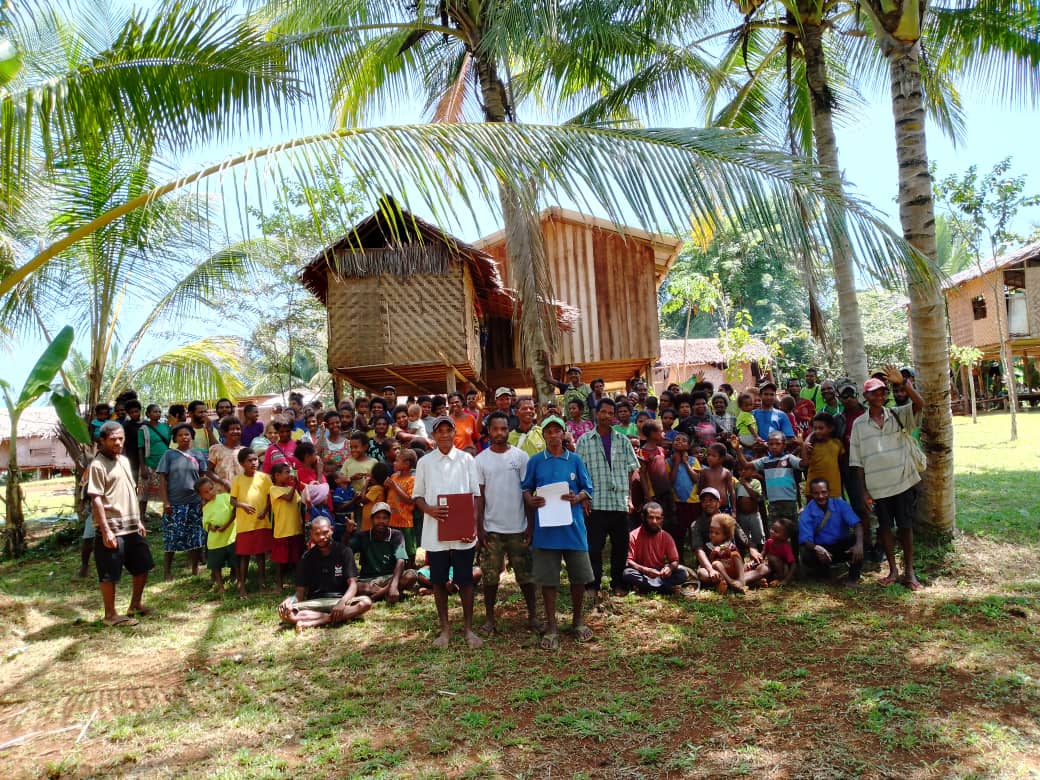

The people of Wadauda at the signing of the partnership agreement between their community based organisation, Peopesa, and Cool Earth.
The people of Wadauda at the signing of the partnership agreement between their community based organisation, Peopesa, and Cool Earth in April. After learning about the positive impact of Cool Earth’s partnership and cash transfer program in neighbouring communities, Wadauda decided they too wanted to partner with Cool Earth.
Cacao Programme, Peru
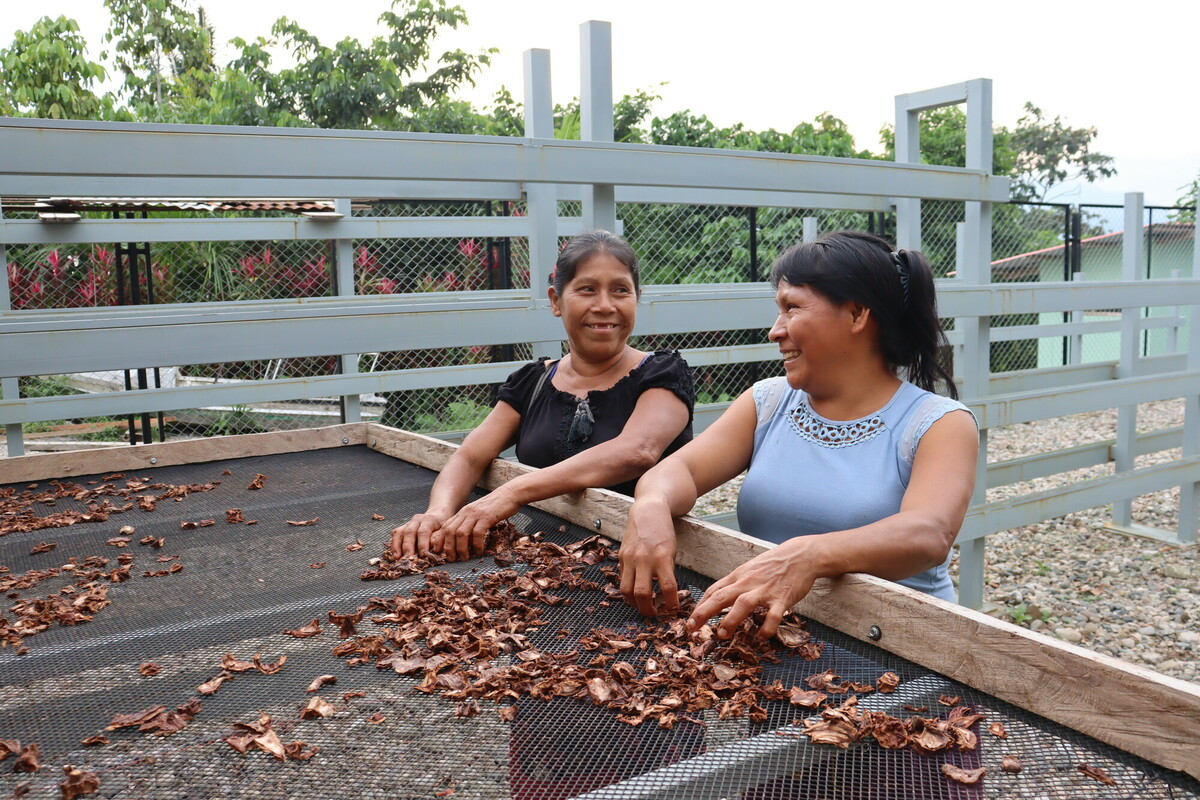

Cemilia and Virginia working at the cacao factory of Urakuza – both are members of the Cocoa Post Harvest Team
Cemilia and Virginia working at the cacao factory of Urakuza – both are members of the Cocoa Post Harvest Team. Cool Earth supports Cacao projects in Peru to back both the Awajun and Ashaninka Indigenous communities. Business ventures, like growing and processing cacao, strengthens communities by creating financial security. Producing cacao also helps to improve food security, in an area where poverty is high and basic needs are difficult to meet.
Water Tank Delivery, Papua New Guinea
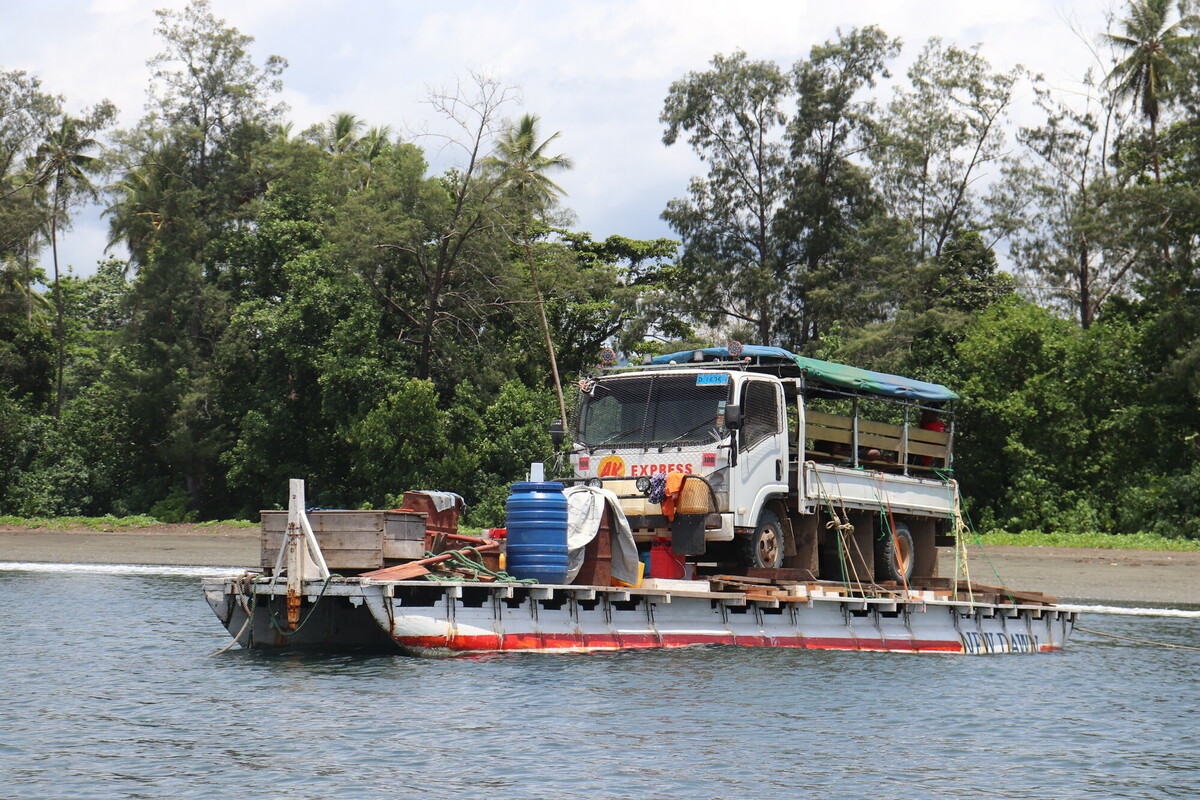

Water tanks and materials being transported by truck and boat to the Wabumari village in Papua New Guinea.
Water tanks and materials being transported by truck and boat to the Wabumari village in Papua New Guinea. In partnership with the local PNG organisation Rural Water Supply Sanitation Project (RWSSP), we are focusing on improving clean drinking water and sanitation for 1,200 people in the communities of Gadaisu, Sololo, Wabumari and Wadauda.
Organic Rainforest Farms, Cameroon
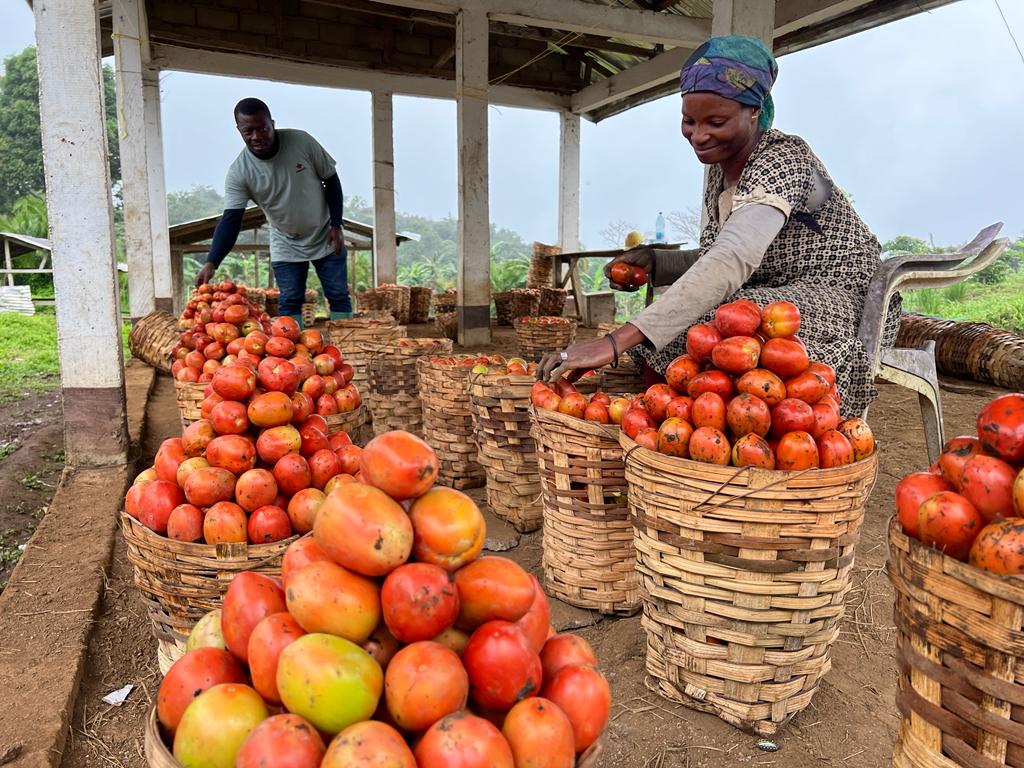

Organic tomatoes are being grown on family farms in rainforest communities
Organic tomatoes are being grown on family farms in rainforest communities and sold at local markets. This helps to ensure financial security for these communities, which helps them fend off threats to their rainforest homes. Alongside our partners CCREAD, we have been supporting a total of 20 local rainforest communities in Cameroon. So far 105 family run organic farms have been established.
First Basic Income Pilot in the Amazon Rainforest, Peru
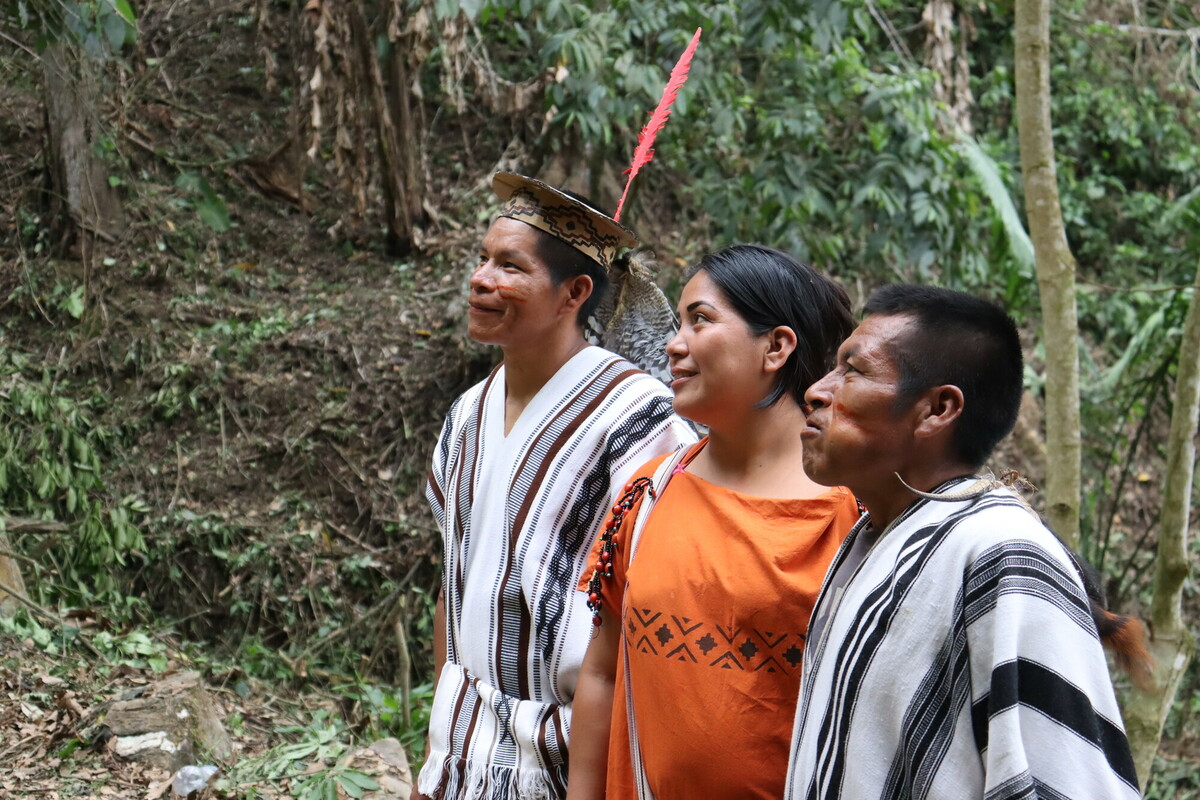

A photo with Ashaninka Leaders taken in Junin, in the Central Jungle of Peru. Hand by hand with the Indigenous organization of women, ONAMIAP, and the Asháninka and Yanesha leaders we built the first basic income pilot in the heart of the Amazon rainforest. The first transfers were made to the communities in November. This will allow three communities and its families to face the impacts of the climate crisis in their territories using their ancestral knowledge.
School Investments, Peru


This is a local school in the Amazon Rainforest.
This is a local school in the Amazon Rainforest. Thanks to the Bridge Funding project of Cool Earth, six Ashaninka and Awajún communities receive cash to invest in health, education or strengthening their communities. This year, many of them decided to improve their local schools by buying supplies, blackboards, chairs, tables or books so their children can be able to develop their class.
Thanks to You
Our supporters, partners and rainforest communities help Cool Earth to continue essential work with local people to reduce deforestation and its impact on the climate crisis. Your generous support this year has helped us achieve incredible things.
Together, we’ve also protected over 600,000 acres of rainforest, containing 136 million trees that store around 243 million tonnes of carbon. Not only this, our partners living in rainforests have reduced deforestation by up to 82% compared to surrounding non partnership areas.
From us and our rainforest partners, thank you. We wouldn’t be here without you. We can’t wait to see what we can achieve together in 2024.
